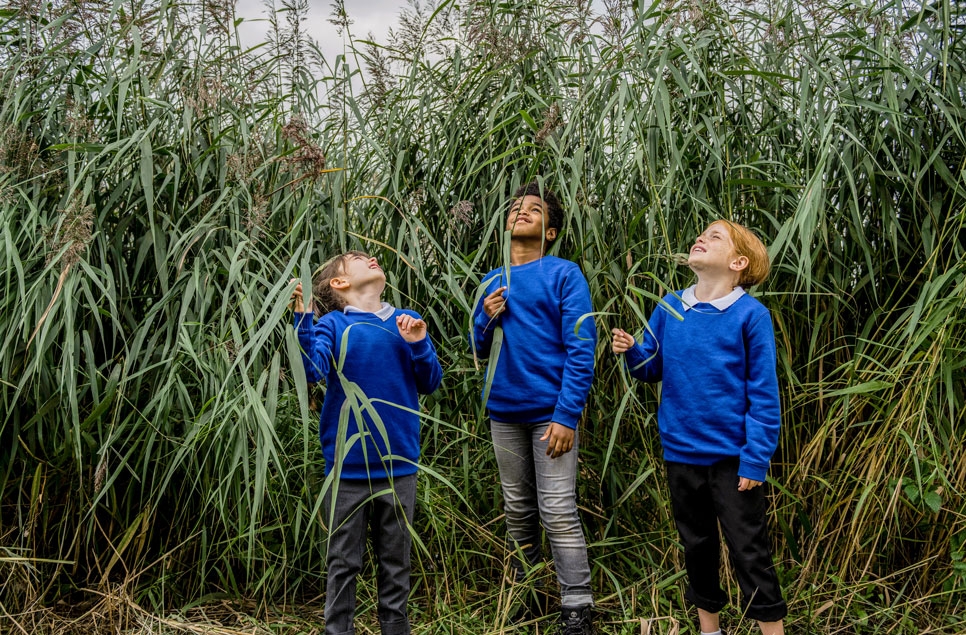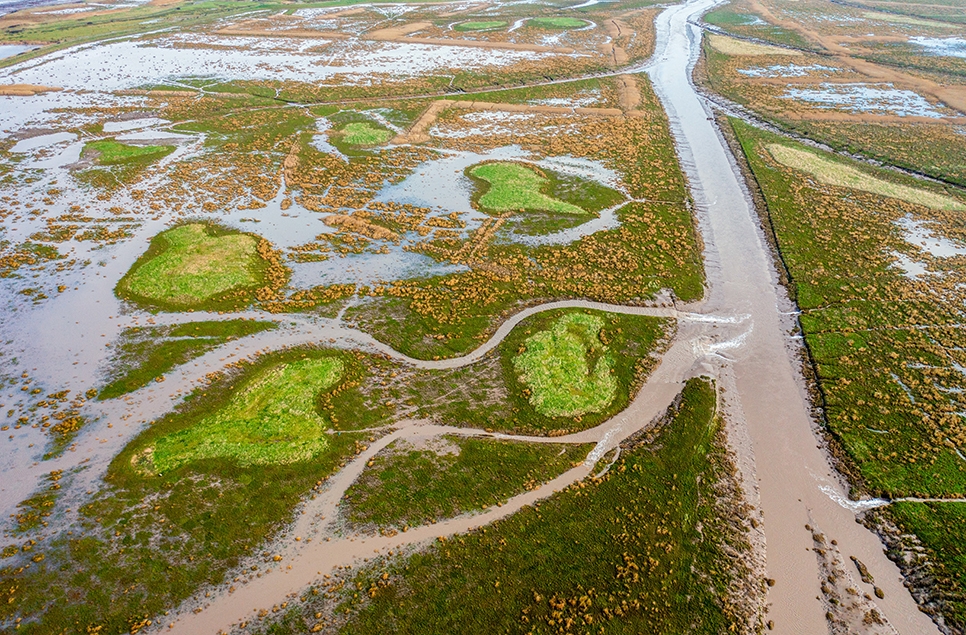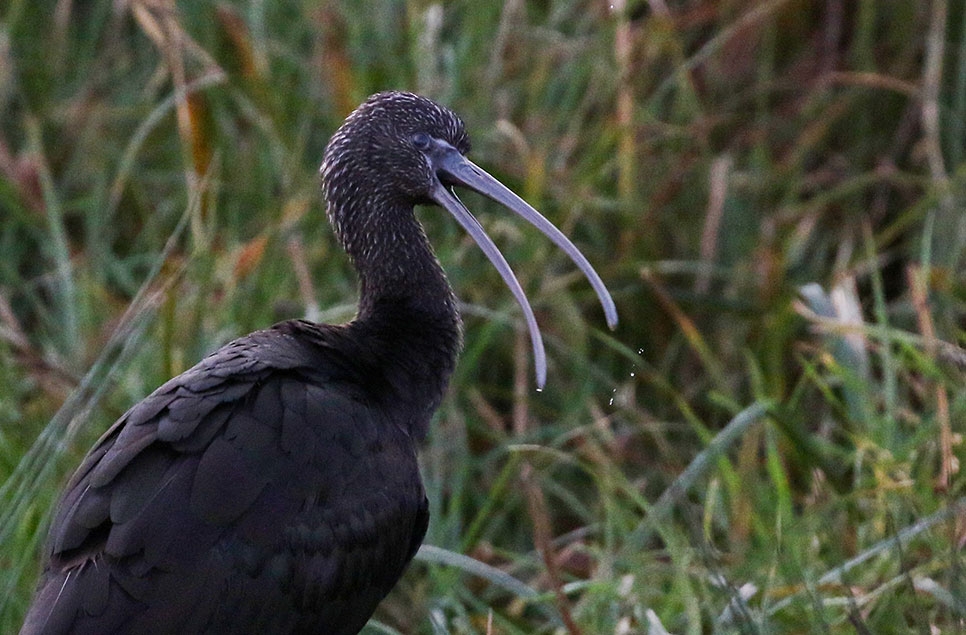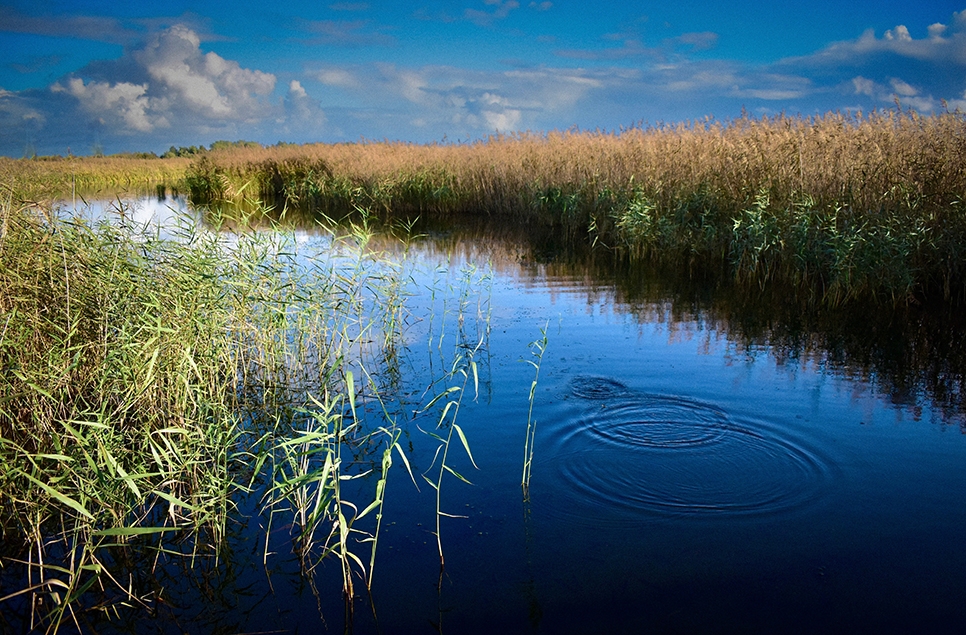Washington's Gill Pipes shares the weird and wonderful
Centre managers are the guardians of WWT. They keep everyone safe – visitors, staff, volunteers and the animals. The health of our centres massively depends on the juggling abilities of these amazing humans who work hard to keep a visit to WWT reserves a great experience for all.
Washington’s Gill Pipes is no different. She joined WWT in 2006 as Trading Manager and took over as centre manager eight years later. Since then, she’s overseen the birth of otter quadruplets, the arrival of a ‘working wetlands garden’ which won Gold Award and Best Garden Award at RHS Hampton Court Flower Show and most recently a winning bid for funding to create Europe’s first solar-powered flamingo house.
Her varied role means that Gill has no shortage of stories to share. Here, she lets us in on some of them.
I tell you what, I have long since stopped being surprised by anything that happens here. When you work with large numbers of both animals and humans, anything can, and does, happen.
Recently, we had to close the centre due to heavy snow. Only myself and one other person made it here for a couple of days and it was quite a surreal experience. Sat in my office alone, I looked out the window to see a crow sledge down a hill on its belly. It then proceeded to do this at least another 6 times – sliding down a small hill, jumping up and hopping back to the top, then sliding down again. The first couple of times I thought it was using the snow as a way of cleaning its feathers (and this will most definitely have been part of it) but those last 5 or 6 times – that was most definitely recreational.
Every day at 9.15am we do a radio check to make sure everyone has a radio, that it’s working and that everyone has what they need for the day. It’s also nice just to connect, however briefly, with everyone before we open to the public. We arrive at 8.30am and only have 1 hour before opening to clean the building, get the café and shop ready and check the whole of site is looking tip top to welcome our visitors so it’s nice just before we do that to say a quick “Hi” to everyone.
On busy days, most people enter our grounds by walking past my office. The part of the morning where a steady stream of excited children burst through the door shouting “Look at the ducks!!!” is a real treat. I feel that way about ducks too.
Seeing the impact our site has on people is the most rewarding thing about this job. It’s genuinely good for the soul. Experiencing families who’ve chosen to visit us over all of the other things they could have done that day and leaving having had a fun and exciting day is remarkable. Also encountering people who may have had a rough time finding solace and peace here. We’re a very busy team and these things always put things into perspective and remind me how lucky I am to be doing a thing I love in a place I am genuinely proud of.
So other people seem to find this funny. In the winter of 2013, I was privileged to be allowed to help out with hand rearing 24 flamingo chicks. Each night we would transport the babies to the night time rearing unit (they needed fed every three hours day and night). We would do this via a large box we customised to contain one small segment for each baby. One night, I was in charge of the box whilst a colleague drove. The babies had a habit of squabbling with each other so my job was to keep everyone in their own segment during transport. As I mediated two of the smaller babies, I was vaguely aware of one of the taller ones standing up tall. Now baby flamingos have this awesome trait where they defecate at a very fast pace (this ensures that their faeces lands away from their nest – a very clever adaptation). As I said to the two squabbling birds "settle down now”, the taller bird decided to evacuate its bowels. At high speed. Into the back of my throat. Very hot and very salty is the answer to everyone’s question.
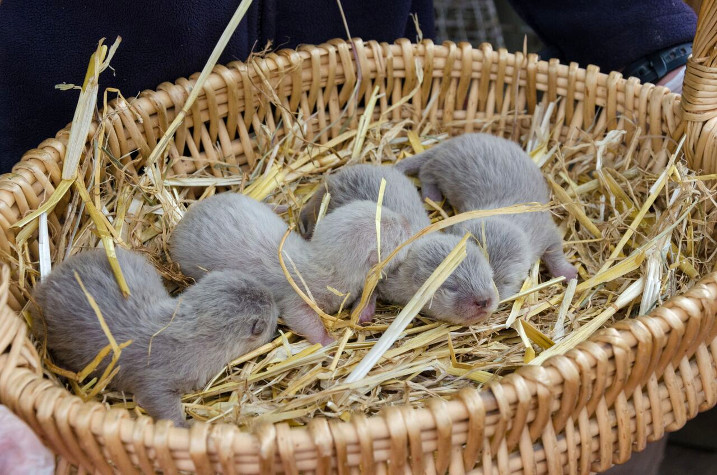
A slightly less traumatic and equally rewarding opportunity came when I accompanied our animal care team on an otter health check. Each year we take our Asian short clawed otters to our local vet clinic for a health check which involves a quick check including a visual inspection, blood tests and x-rays. The otters, whilst adorable, are very much wild animals. We don’t stroke them or hug them – we value our fingers too much - so they do require a brief period of sedation so we can do this safely for both otters and humans and in as stress free a way as possible for the otters. We took Mimi and Musa, the mum and dad of our group, and I was there to take some photos and videos of the process so we could share the event as a learning experience back at the centre (and for future staff). Musa went first. His exam was completed and he came round well from his sedation. I settled him and went to log Mimi’s exam. However Musa (who is a very sweet otter) had other ideas. He was insistent on getting our attention – calling out to us and putting his paws through his holding crate. I kept returning to him to reassure him but in the end I sat on the floor with him as he only relaxed if I allowed him to wrap his fingers round one of mine. What a privilege to get so close to him (even if it did mean we had to get one of the vet nurses to take over filming). The trick was not to get so drawn in to the experience that I forgot that once the sedation wore off fully, that finger could swiftly be munched on! Within an hour, the otters were back in their exhibit as if it never happened but it’s an experience I’ll always remember.
People are amazing, resilient and hugely varied. I come into contact with so many people – staff, volunteers, customers and peers – and everyone brings something new to the table, something surprising and interesting.
The job can be really stressful! Don’t get me wrong, it’s a brilliant job. Hugely varied and interesting. No two days are ever the same. I learn something new every day. I love it. But I am ultimately responsible for making sure everyone’s needs are met every day - all of our staff and volunteers, all of our visitors and my colleagues who work across WWT. Everyone needs to be safe and to get what they need from being here. However, we keep that stress behind closed doors. Once we step out into the corridor, it all disappears temporarily as you get enveloped in the fluffy loveliness that is our visitors
We’re an urban oasis here. Surrounded on three sides by large industrial units and on the fourth by the river Wear. Life can be tough these days. It goes at such a pace and people can become overstretched and overwhelmed. We need places like this to remind us to breathe. To just “be”. For children to run around, explore, meet nature and learn how to interact with it. My job is to make sure we’re delivering these opportunities as a team. We have around 30 staff and 100 volunteers here who are very focussed on delivering unforgettable experiences to visitors whilst conserving nature for future generations – that’s a pretty big remit.

I worry about the human impact on both our site and nature in general. The rich tapestry of the wildlife that surrounds us is under threat from every angle and we have to do more to preserve it. There are so many people fighting to do this but for every action to save wildlife there are hundreds damaging it. We have to make better choices as human beings. We have to conserve nature’s resources and make good choices in our everyday lives or all of the benefits of a natural environment will be lost to us and all of the other species which rely on it.
One of my favourite parts of the day is when the team catch up as they leave. We’ve got a brilliantly dynamic team here who achieve a lot and these ad hoc chats are very important in terms of me keeping up to date with good news (or challenges). “What you having for tea?” is also a regular feature of these conversations which I very much enjoy.
I’m very grateful for all the people who support us – the people who choose to visit us/become a member/adopt an otter, those who give up their free time to work on our site, the decision makers who award us funding (when there are so many worthy causes out there), those who give to our cause through legacies, buying a cuppa in our cafes, playing People’s Postcode Lottery, the teachers who bring their classes here, the people who take the time to review us on social media… People really are amazing.
Support from players of People’s Postcode Lottery have helped Gill and her team make visits to our reserves unforgettable by funding a new wildlife observatory and enhancing areas of key habitat benefitting lapwing, avocet and redshank.
